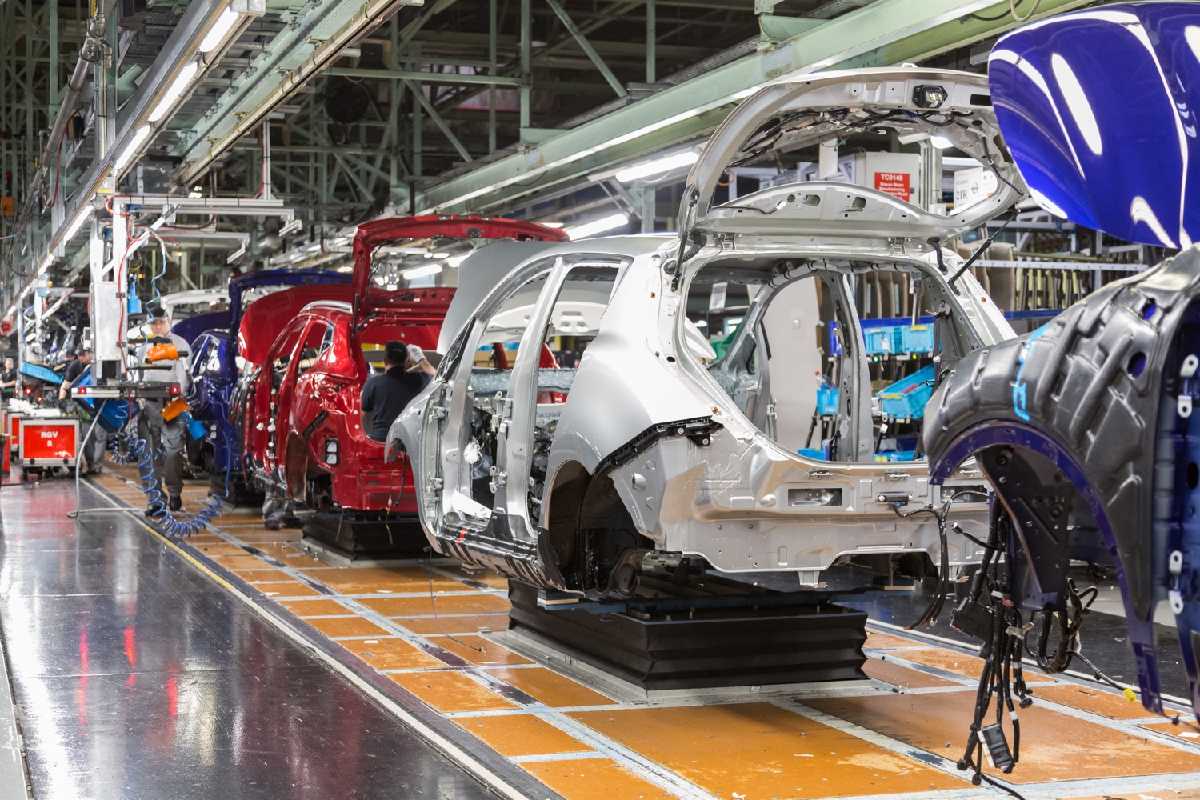
The Manufacturing of an Electric Vehicle
The manufacturing of an electric vehicle: The production of EVs in the future.
We assist our automobile manufacturing customers in transitioning from internal combustion engines (ICE) to electric vehicles by providing services ranging from multi-sensor fast scanning of machined casings to fuel cell material analysis (EV).
Automotive batteries
- Raw materials analysis
- Range performance research
- Supply chain control
- Our non-destructive Raman technology can be used to analyze batteries’ chemical makeup under various operating circumstances, including rapid charging and high or low temperatures. Analyze the battery’s response to determine ways to increase its effectiveness.
Power Electronics
- Inspection of non-destructive materials
- quality and material yield improvements
- Reduce in-field failures
- The size, weight, and maximum power delivery of new semiconductor materials are all improved. You can comprehend these challenging semiconductor materials with our Raman technologies and create more effective devices.
Electric motors
‘Go/no-go’ hairpin height checks
Check insulating paper
HIGH-SPEED REVO STATOR INSPECTION
Avoid having defective components turn expensive final products into scrap. Stator laminate stack sub-assemblies can be quickly inspected using our EquatorTM in-line measuring system. Reprogramme the adaptable Equator gauge if a design changes.
- Gearbox NVH reduction
- Control of the industrial process in a closed loop
- At the manufacturing facility, in-line gauging, and multi-sensor measurement systems
- Rapid and flexible design and inspection process adaptation
- Manufacturers can develop higher-precision gears and stiff casings to lower gearbox noise, vibration, and harshness (NVH) levels and increase vehicle efficiency by managing component tolerances.
Engines
REVO 5-axis scanning for valve seats and leaders with surface finish probing and multi-sensor capabilities
Rapid surface condition and shape measurement for process control on the machine
Every last bit of efficiency from the ICE must be extracted by hybrid automobiles. Engine efficiency is subject to minute manufacturing imperfections in and around the cylinder head’s valve seat and guiding region, combustion chambers, valve seats, and guides using REVO 5-axis scanning technology.
Top Electric Vehicle (EV) Companies Worldwide:
- Bayerische Motoren Werke AG
- Establishment -1916
- Headquarters – Munich, Germany
Currently, BMW is the world’s largest producer of high-end cars and motorcycles. An innovative combination of materials, digitalization, and resource-efficient production strongly emphasizes production technology and sustainability.
The company has a global sales network and 31 production and assembly sites across 15 nations. Under the BMW I and X categories, BMW sells plug-in hybrid and electric cars.
BYD Auto Company Limited
- Establishment – 1995
- Headquarters- Shenzhen, China
Dedicated to technological advancements in electronics, cars, new energy, and rail transportation, BYD is a high-tech firm. BYD aspires to offer zero-emission energy solutions, including energy generation, storage, and application, with more than 30 industrial parks worldwide.
It is the one manufacturer in the world to possess exclusive intellectual property rights and knowledge in the three key technologies of electric vehicles—batteries, electric motors, and electronic controllers.
The business also created the first plug-in hybrid compact sedan and the initial version of BYD’s Dual-mode technology. It is one of the top producers of power batteries.
- Chery Automobile Co.
- Establishment – 1997
- Headquarters- Wuhu, China
Chery Automobile Co. is a well-known automaker that has developed popular product brands like Arrizo, Tiggo, and the high-end EXCEED.
Additionally, it has made history by becoming the first Chinese passenger car firm to sell finished vehicles, CKD components, engines, manufacturing technology, and equipment abroad.
Besides, it has effectively created the first and second generations of unmanned driving goods and combined smart manufacturing, IoT, blockchain, intelligent transport, and innovative lifestyles for consumers worldwide.
Conclusion
- Through the billions of dollars invested by automakers, tier suppliers, and government incentives and requirements, it is clear that there has been a considerable change in emphasis toward the design and production of electric vehicles and EV-related technology.
- Now more than ever, it’s imperative to find an industrial automation partner to support EV manufacturing.


